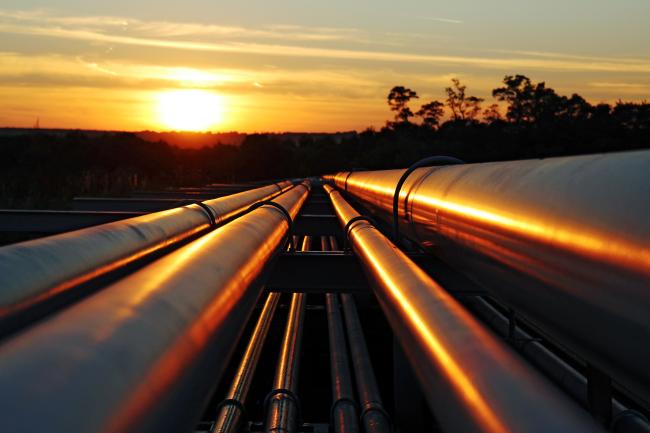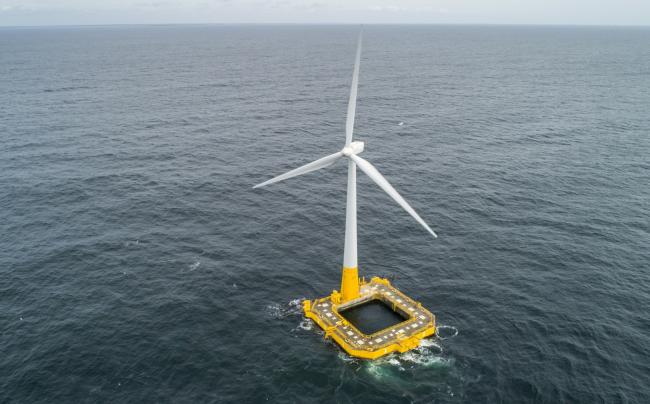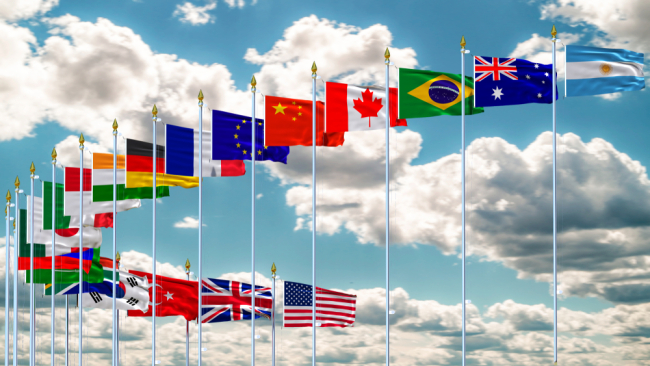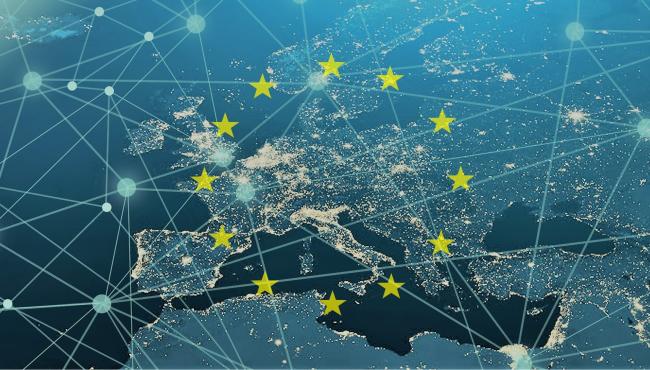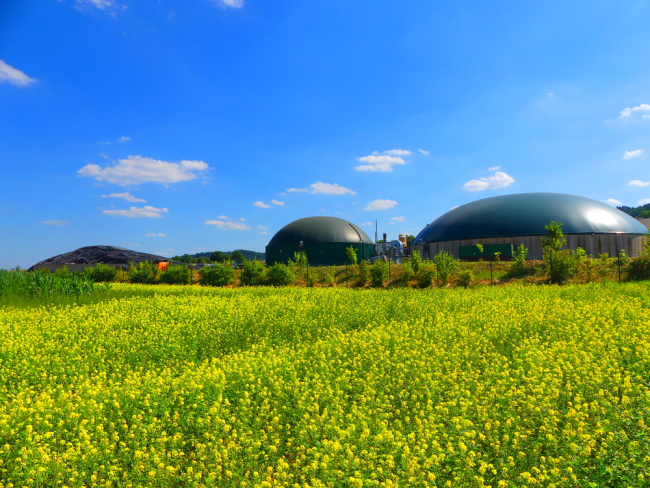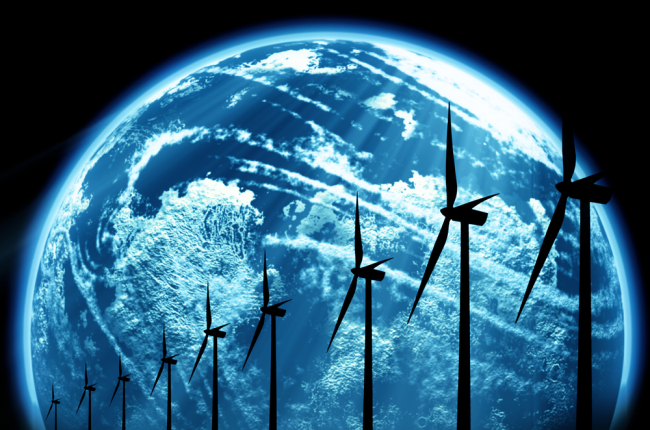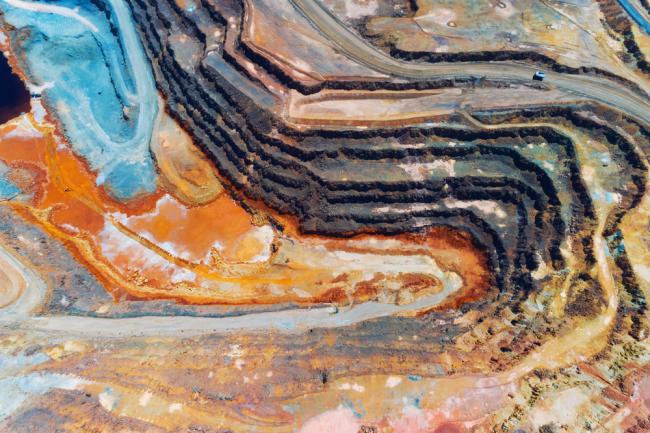The Development of Hydrocarbons in East Africa: Political and Security Challenges
East Africa has the potential to experience a gas and liquefied natural gas (LNG) export boom in the coming years due to several projects that have been released.
Accelerating the Energy Transition in the Southern Mediterranean
The Mediterranean region has been identified as one of the most affected regions by climate change endangering human security at the food-water-energy nexus.
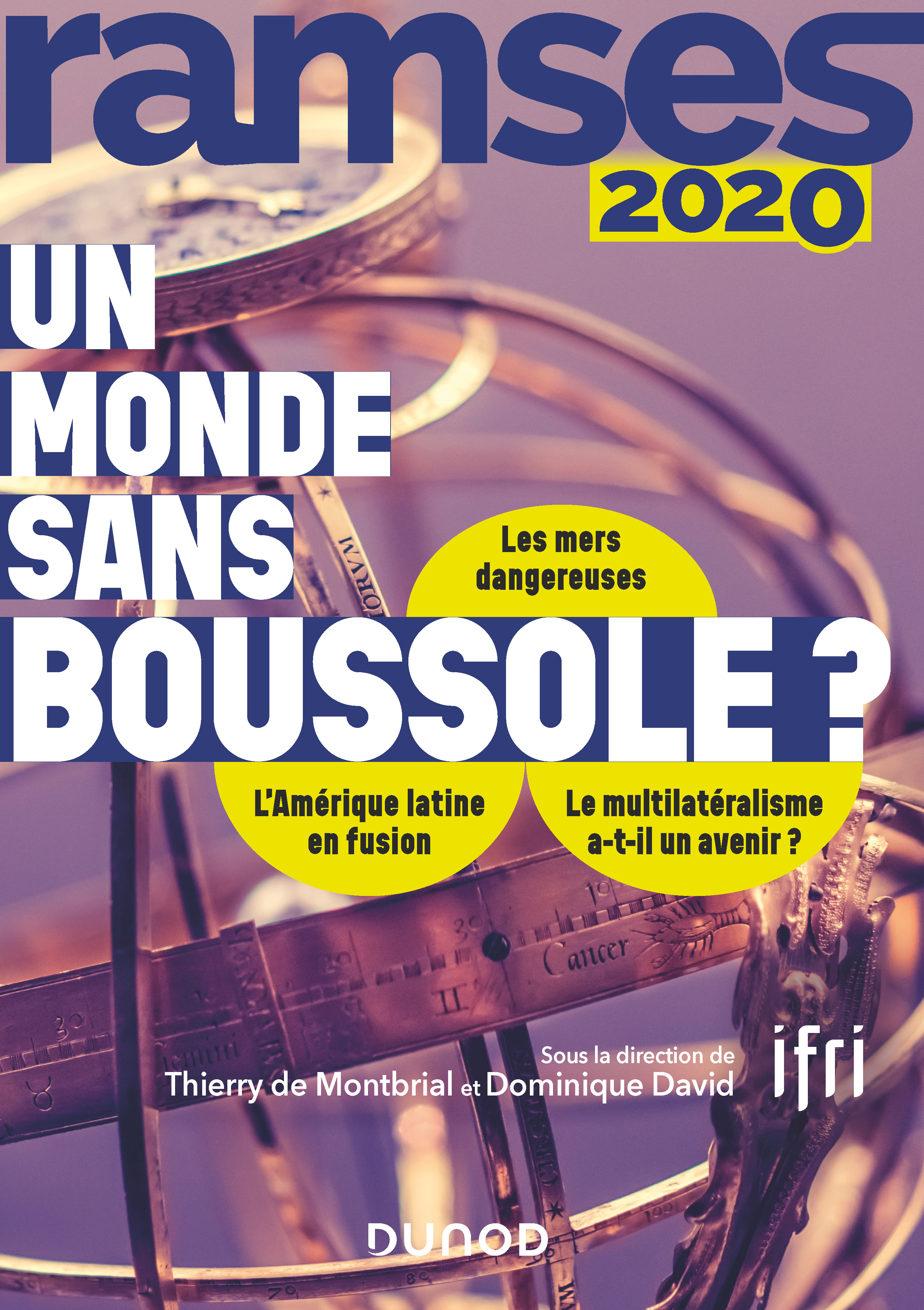
RAMSES 2020. A World without a Compass?
RAMSES 2020. A World without a Compass?, written by Ifri's research team and external experts, offers an in-depth and up-to-date analysis of geopolitics in today’s world.
Offshore Wind Power Floating in its Industrial and Technological Dimension
Europe has become a frontrunner in fixed offshore wind. Can this success story be replicated with floating offshore wind, a technology that would lift the sea depth constraint and thus open up wider market opportunities? This research study looks at the main success factors for this emerging industry.
Sustaining Multilateralism in a Multipolar World. What France and Germany Can Do to Preserve the Multilateral Order
While international multilateralism is under strain, it is vital for France and Germany to defend it, since it is the most appropriate system for preserving their interests – particularly in terms of welfare, security, prosperity and environmental protection. Against this backdrop, three political fields offer opportunities for joint initiatives: trade, conventional arms control and climate change.
Strategic Dimensions of the Energy Transition: Challenges and Responses for France, Germany and the European Union
The low-carbon energy transition in France, the European Union (EU) and the world is today taking place unevenly and too slowly to preserve the climate and biodiversity. CO2 emissions are continuing to rise, while governments’ commitments are insufficient: in the long-term, the world is set to see temperatures increase by +3°C. Efforts to fund adaptation measures still need to be strengthened considerably.
Biogas and Biomethane in Europe: Lessons from Denmark, Germany and Italy
At a time when the European Union (EU) is discussing its long-term climate strategy and drafting new legislation to foster the decarbonization of its gas sector, a close look at the experience of Denmark, Germany and Italy with renewable gas production can provide valuable lessons.
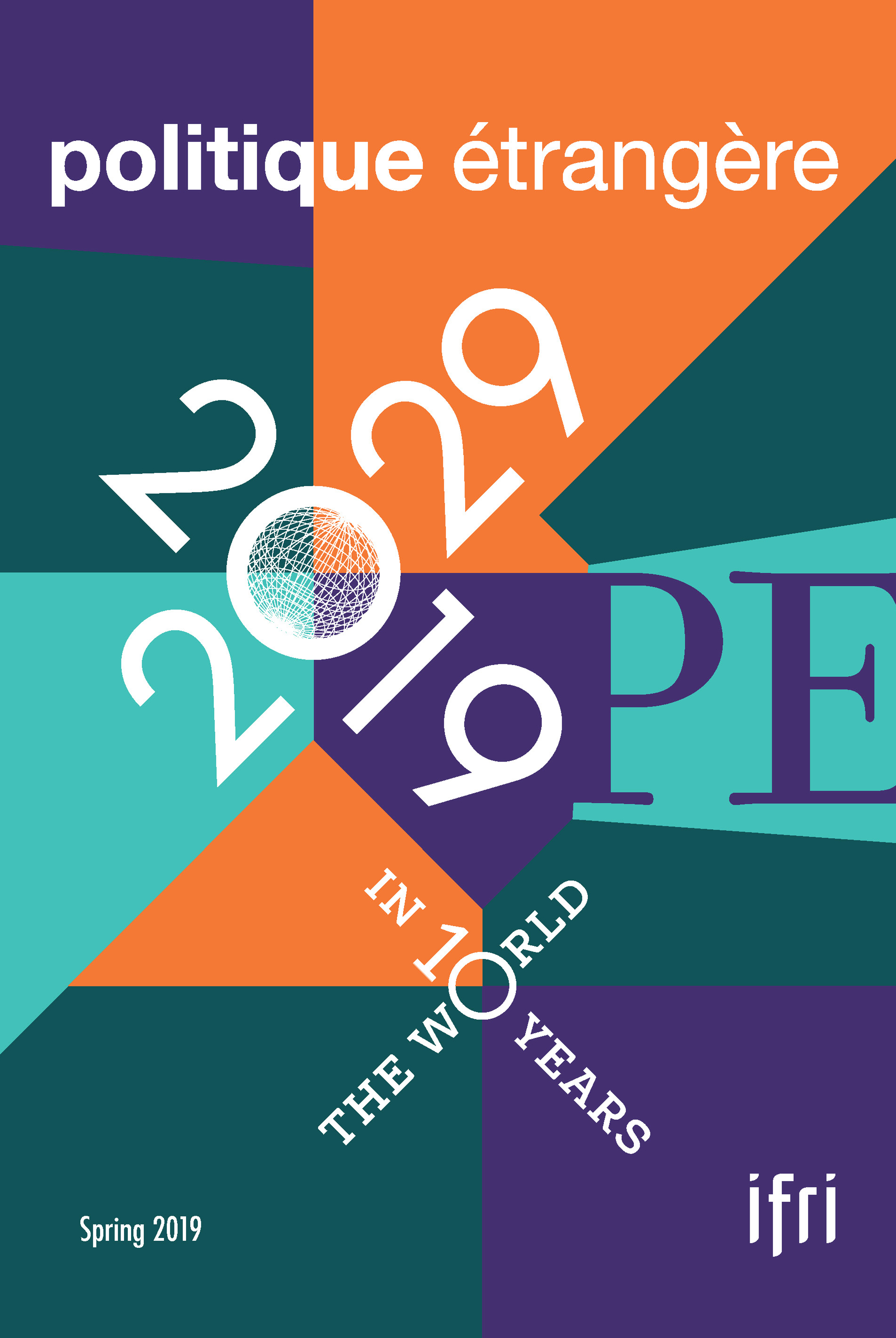
2019-2029: The World in 10 Years
The last four decades have witnessed the profound transformation of the very foundations of the international system: the globalization of trade, technical revolutions, the upheaval of the hierarchy of powers, the emergence of China, the explosion of the Middle-East, the mutation of conflicts and threats, climate concerns, etc.
Shaping the Global Governance of Renewables: A Comparative Institutional Analysis
Over the past decade, facilitating the widespread deployment of renewable energy sources (RES) and enabling their integration within the energy systems has become a central priority for various international organizations (IO) and initiatives.
The need for a strategic recycling approach to take up the challenge of critical metals
In September 2010, China stopped all exports of rare earths and associated products to Japan, depriving Japan’s industry of essential raw materials. This decision highlighted the tensions around the trade of critical materials and China’s monopoly on a group of particular metals. Western countries had already taken some initiatives so as to reduce, or at least to analyse their vulnerabilities in the segment of critical materials.
Renewables in Transport: Directive 2009/28/EC - Devils in its Details
This Actuelle precedes a longer and more exhaustive paper on Electric Vehicles, under the title "The Electric Vehicle in the Climate Change Race: Tortoise, Hare or both?" by Maïté de Boncourt.
As part of the 3*20 targets reached in December 2008, the EC decided that the EU should, by 2020, source 20% of its Final Energy Consumption (FEC) renewably.
The Electric Vehicle in the Climate Change Race: Tortoise, Hare or Both?
Europe is seeking ways to decrease the growing negative impact of passenger cars on climate, currently responsible for up to 12% of total EU CO2 emissions. After biofuels in the nineties and hydrogen in 2000, the new answer to climate change appears to be electric. But contrary to many marketing messages, electric cars are not zero emissions cars. They will not necessarily contribute to actual CO2 emission reductions before 2020 and even then, not in every country.
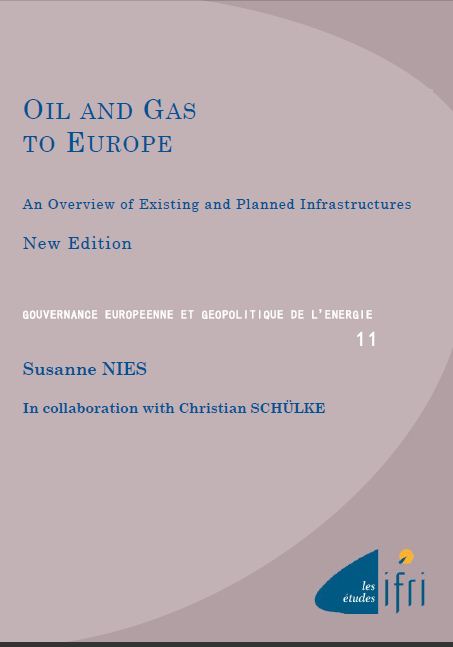
Oil and Gas Delivery to Europe: An Overview of Existing and Planned Infrastructures. New Edition
The European Union’s hydrocarbon energy supply depends heavily on imports. While the European Commission has recommended diversifying and increasing domestic resources, notably with renewable resources which should grow to 20% by 2020, dependence on hydrocarbon imports will remain not only substantial, but will increase.
The Politics of Amnesty in the Niger Delta : Challenges Ahead
Armed groups, many affiliated to the Niger Delta-wide political organisation MEND, the Movement for the Emancipation of the Niger Delta, proliferated throughout the oil producing states, particularly from early 2006 onwards. In January 2006, MEND declared war on the oil industry pending the resolution of long term political grievances relating to poverty and underdevelopment, the poor regulation of an environmentally polluting oil industry, and the alienation of local people from rights to land and resources in the Niger Delta.
Lessons Learned from Oily Pelicans? A Comparative Policy Paper on Maritime Oil Spill Disasters
Turn on the news or open the paper and sure enough there will be mention of the disastrous oil spill in the Gulf of Mexico. Although it has retreated from the big headlines, the disaster still looms large as people deal with the aftermath of the BP catastrophe.
Jurassic Oil
Why do we have to drill through a mile of water and then three miles of rock to get oil? Surely there are better options in the world’s geologic resource base than deep, acidic, high pressure deposits that threaten the waters and coasts of the Gulf of Mexico, Gulf of Guinea, Campos Basin, Barents Sea and the Caspian. Most of this is oil that got deposited even before continental drift started.
Disaster in Gulf not a Disaster for Obama
Pundits argue that the BP accident in the US Gulf is a final nail in the coffin of President Obama’s energy and environment legislation. They conclude that American energy and environment policy will be left in disarray with little hope for key decisions before the crucial Cancun climate change talks.
Copenhagen's Legacy Is Ambiguity
The third Ifri Annual Energy Conference held at the Plaza Hotel, Brussels in February 2010 posed the question: “How do we begin effectively to close the gap between climate change policies and current practices - or put another way between climate change rhetoric and market reality”.
Who Needs OPEC - Russia steps up to the Plate ?
News that Conoco will sell off a significant portion of its Russian holdings is couched in terms of various corporate strategies that make all this perfectly normal. Conoco is said to need cash and will anyway have a 10% share remaining in Lukoil that will provide them some degree of influence in corporate decisions.
German Power Options: Lack of Clarity Will Be Costly
The German environment minister Norbert Röttgen (CDU) revived the German debate about the future of nuclear power in February when he argued for a limited lifetime extension of Germany’s nuclear plants.
Support independent French research
Ifri, a foundation recognized as being of public utility, relies largely on private donors – companies and individuals – to guarantee its sustainability and intellectual independence. Through their funding, donors help maintain the Institute's position among the world's leading think tanks. By benefiting from an internationally recognized network and expertise, donors refine their understanding of geopolitical risk and its consequences on global politics and the economy. In 2025, Ifri supports more than 80 French and foreign companies and organizations.







